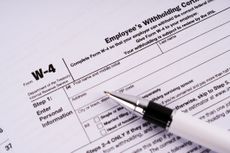
-

Worst States for Investors With Long-Term Capital Gains
Capital Gains Tax -

How Annuities Can Help You Retire Early and Delay Social Security
-

Kiplinger 25 Model Portfolios
The Kiplinger 25 -

How to Help Your Kids Without Ruining Your Retirement
-

The 25 Best No-Load Mutual Funds You Can Buy
mutual funds -

Venice Launches Fee for Day-Trippers
Get Kiplinger Today newsletter — free
Profit and prosper with the best of Kiplinger's advice on investing, taxes, retirement, personal finance and much more. Delivered daily. Enter your email in the box and click Sign Me Up.
Investing
-

If You’re Preparing to Move, Should You Buy or Rent?
Both prospects are expensive these days, but there are several questions you can ask yourself to help you decide what’s right for you.
By Justin Stivers, Esq. Published
-

Stock Market Today: Markets Soar Amid Strong Earnings for Big Tech
Equities ended the week on an up note thanks to some of the market's biggest names.
By Dan Burrows Published
-

Kiplinger's Economic Calendar for This Week
Check out our economic calendar for this week, as well as our previews and recaps of the more noteworthy reports.
By Karee Venema Last updated
Personal Finance
-

Find Your Monthly Payment With This Mortgage Calculator
With our mortgage calculator, you can easily determine your monthly mortgage payment.
By Erin Bendig Last updated
-

Earn Delta SkyMiles Worth Up to $1,800 with an AMEX Business Card
Delta SkyMiles and American Express offer 150,000 on business credit card for new cardholders.
By Ellen Kennedy Published
-

Earn Delta SkyMiles Worth Up to $1,800 with an AMEX Business Card
Delta SkyMiles and American Express offer 150,000 on business credit card for new cardholders.
By Ellen Kennedy Published
Meet Kiplinger's Experts
Taxes
-

W-4 Form: Extra Withholding, Exemptions, and Other Things Workers Need to Know
Tax forms Knowing how the IRS Form W-4 form works can help with new jobs, tax refunds, and avoiding estimated tax payments.
By Rocky Mengle Last updated
-

Knowing How to Compute Tax Basis in Your Home Can Save You Money
The Tax Letter Whether you're selling or buying a home, you'll want to know how to compute tax basis. It could save you on taxes when you sell.
By Joy Taylor Published
-

State Tax Changes: What’s New for 2024
State Taxes As of Jan. 1, several state tax reforms have gone into effect that can impact your finances.
By Kelley R. Taylor Last updated
Kiplinger Advisor Collective
-

Eight Easy Ways to Save Money Without Compromising Your Lifestyle
Saving money can be as simple as a quick phone call.
By Kiplinger Advisor Collective Published
-

Seven Steps Couples Should Take Before Blending Their Finances
Getting on the same page now can ensure you remain successful throughout your relationship.
By Kiplinger Advisor Collective Published
-

11 Mindsets That May Actually Be Hurting Your Financial Progress
To change your finances, you’ll first need to change your thinking.
By Kiplinger Advisor Collective Published
Retirement
-

Dating Again? Nine Rules for Older Singles
Don't be afraid of dating when you're older. But do be careful. We have some dos and don'ts for senior daters.
By Katherine Reynolds Lewis Last updated
-

Niche Retirement Communities Are Growing — Are They Right for You?
Niche retirement communities, where people come together over shared affinities, are becoming more abundant.
By Eileen Daspin Last updated
-

Is Your Retirement Solution Hiding in Plain Sight?
Here’s how to use your home equity in combination with an annuity contract to produce late-in-life income.
By Jerry Golden, Investment Adviser Representative Published
Economic Forecasts
-

Kiplinger's GDP Outlook: Economic Growth Slows to Normal
Economic Forecasts The economy’s quarterly growth rate will likely average 2% from now on.
By David Payne Last updated
Economic Forecasts -

Kiplinger Interest Rates Outlook: Still-Strong Inflation Will Delay Fed Rate Cuts
Economic Forecasts A stronger-than-expected report on March inflation likely will delay the Fed’s first rate cut.
By David Payne Last updated
Economic Forecasts -

Kiplinger Inflation Outlook: Strong March Report Will Put the Fed on Pause
Economic Forecasts Any interest rate cut will likely be delayed until the end of July or later, to make sure inflation is weakening.
By David Payne Last updated
Economic Forecasts















